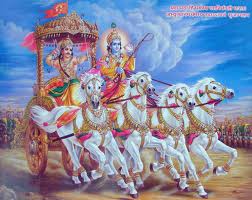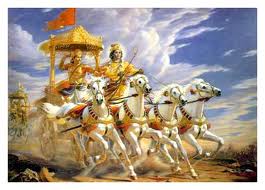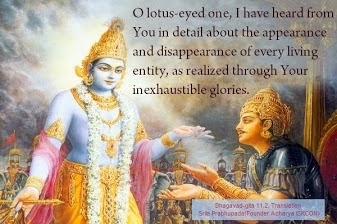Thursday, Dec 19, 2013. Srimad Bhagavadgeeta : Chapter-4. ( Jnana-karma-sanyasa-yogam ) Slokam-39. The topic in this slokam is :- { Niscitopayam [ ( Decided/ Judged ) + ( way /trick to achieve/achieve goal ) ] } for Jnanaarjjanam ( achieve/ gain/earn+ Knowledge ).

Thursday, Dec 19, 2013. Srimad Bhagavadgeeta : Chapter-4. ( Jnana-karma-sanyasa-yogam ) Slokam-39. The topic in this slokam is :- { Niscitopayam [ ( Decided/ Judged ) + ( way /trick to achieve/achieve goal ) ] } for Jnanaarjjanam ( achieve/ gain/earn+ Knowledge ). Sradhavaan labate jnanam tatparah samyatendriyah, Jnanam labddva paraam santim acirennaadhigacchati. Tatparah = Interested in Paramatma tattvam, Samyatendriyah = Control Indriyas as necessary, Sradhavaan = The concentated (wise ) man, Jnanam labate = Achieve, Atmajnanam ( knowledge of self ). Jnanam labddva = Once gained Jnanam, Acirenna = Without delay, Paraam santim = The Supreme Peace, Adhigachati = ( is ) Attained. If one ( seeker ) wants to gain Atmajnanam, necessary three gunas ( qualities / characters ) for those Sadhakas (seekers) : told in this slokam. Those seekers who think that their sadhana is the sinc


